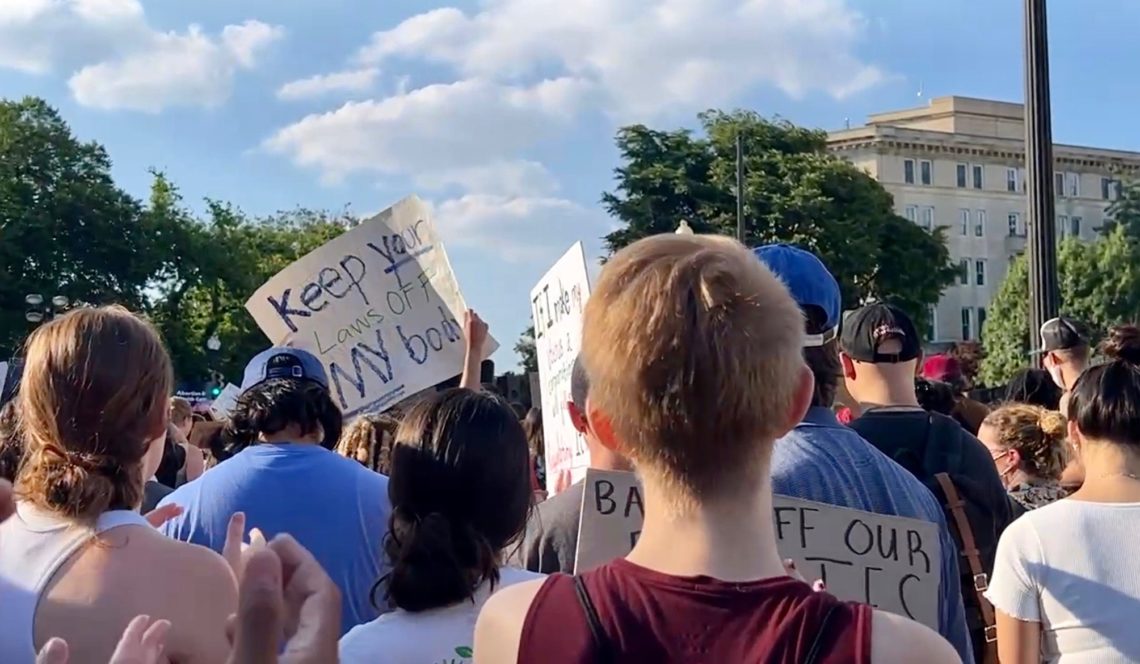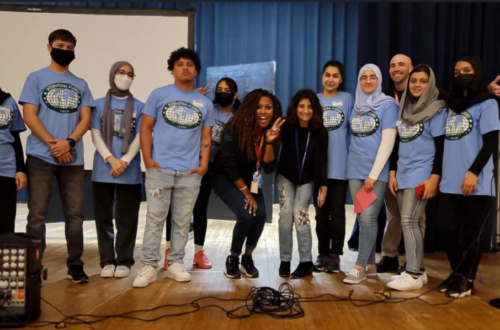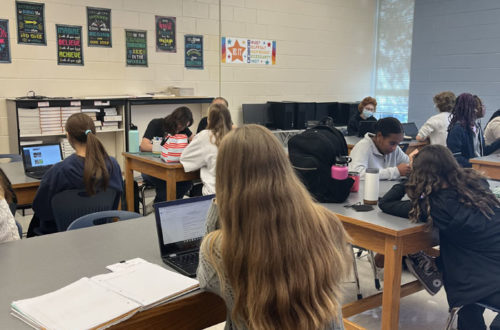Sarah Porter
Staff Writer
On June 24, the Supreme Court overturned Roe v. Wade, the 1973 landmark decision which protected abortion rights. The same day, Virginia’s governor Glenn Youngkin announced that he would pursue a state abortion ban after 15 weeks of pregnancy, leaving exceptions for rape, incest and some instances where pregnancy risks the mother’s life. Youngkin, an outspoken pro-life Republican, intends to fulfill his promise to support any bill that outlaws abortion after 15 weeks, a component of his campaign to ‘protect life’ which started with his run for election in January 2021.
The Dobbs v. Jackson Women’s Health Organization Supreme Court case instituted the overturning of Roe. In a 6-3 decision, each individual state would now decide on abortion laws for its state’s residents.
The overturning of this landmark case instilled fear in millions of people across the country, and it created additional gaps in their accesses to reproductive care, particularly for low-income individuals.
However, thus far, Governor Youngkin’s attempt to ban abortion after 15 weeks has been futile. Virginia’s senate is majority Democratic, with 21 Democrats to 18 Republicans. Moreover, the Virginia House of Delegates is majority Republican, with 51 Republicans to 47 Democrats.
Even with Republicans narrowing controlling the House of Delegates, the 21-18 Democratic majority control of the Senate is blocking any bill that attempts to ban abortion. Nonetheless, the City of Alexandria still plans to ensure the protection of residents’ reproductive freedom in the case of the passage of an abortion ban after 15 weeks.
This began with the completion of a unanimously voted Alexandria City Council resolution on June 28, 2022, advocating the General Assembly and Congress to protect abortion rights.
“In the legislative package that we adopt every year, we have always opposed any needless restrictions on abortion. That is certainly something that we have continued to restate in June and after the Dobbes’ decision came out. We adopted a resolution to the [city] council that reaffirmed our support for access to abortion services in our community,” said Alexandria Mayor Justin Wilson.
However, Wilson and his team did not stop there. They set in motion several actions, including making statements to Virginia’s General Assembly on the necessity of abortion. Furthermore, they asked the Virginia state attorney to support litigation and lawsuits opposing any actions to restrict abortion in the city and state. Securing abortion for the state begins in its cities. “We want to look at how we preserve access to care in the city, particularly for low-income women. One of the conversations we’ll have in the upcoming budget is looking at the gaps that exist,” said Wilson.
According to Virginia law, state-funded abortions are mandated when women meet specific financial criteria in cases where the fetus will be severely physically deformed or mentally deficient. Moreover, Virginia denies Medicaid coverage to fund abortion other than in cases of rape, incest or severe fetal incapacitation.
Governor Youngkin proposed to cut state funding for abortions in cases of severe fetal incapacitation; however, it has not passed.
“Should that pass— which I’m hopeful it won’t, and I’m hopeful the Senate will prevent any of that— we need to make sure that we maintain access for residents in our city, and we’ll certainly work to do that,” said Wilson.
The city anticipates the arrival of individuals from out of state seeking abortion care within Alexandria and the rest of Virginia. For example, Wilson sees West Virginia and Kentucky as places where those residents may seek abortion care within Virginia.
“[We are] trying to maintain the full array of services in the community and make sure there’s a variety of different agencies and nonprofits in the region that protect these services. The D.C. abortion fund, and others, work to protect access, not just to the expenses of abortion, but also travel expenses associated with [seeking care],” said Wilson.
The Centers for Disease Control and Prevention’s 2019 data states that Black women receive 23.8% of abortions, while Hispanic women receive 11.7% (Vox). Further, Black women undergo the highest rates of pregnancy complications and maternal mortality (1). Recognizing that abortion restrictions disproportionately affect low-income women of color, the City of Alexandria recognizes the need to focus services on those most underserved and vulnerable.
“[When you ban abortion], you’re banning legal abortion, primarily for low-income women. In the pre-Roe days, Women always found a way to get access to abortion, whether they are traveling to other places, there was a way. I think protecting access is going to be vitally important,” Wilson said.
In the aftermath of Roe, according to Forbes magazine, abortion clinics have been forced to close or relocate to abortion-legal states. Guttmacher Institute, a research and policy organization, states that 43 clinics in 11 states have ended abortion services since the Dobbs ruling. In Alexandria, abortion care clinics, such as Alexandria’s Women Health Clinic and Whole Woman’s Health Care of Alexandria, would be at risk with the passage of any law banning or further restricting abortion.
Additionally, aggression and intimidation from protestors can harm individuals receiving care at a clinic. Acts of harassment can deter individuals from accessing care.
“We’ve had a long partnership with [abortion care] providers as it relates to security and access. Particularly, managing some of the folks who attempt to intimidate folks receiving services,” said Wilson.
The City of Alexandria not only provides security physically but also through spreading accurate information and awareness of abortion services. In order to make the right decision for themselves, Wilson believes individuals must understand the options that are open to them.
“We work with our health department and Neighborhood Health, and some of our health care service providers in the city, [as well as] nonprofits that direct women to the services that they require, and make sure they have the information as necessary to access those services free of intimidation,” Wilson said.
Even so, gaps still exist in accessing information pertaining to abortion care services, particularly for low-income women of color. Partnerships with faith-based communities in the city connect underprivileged populations with access to healthcare services.
In addition, undocumented immigrant populations can be sent to INOVA Hospital to safely obtain care. Another safe option is the D.C. Abortion Fund, which brings services to individuals without insurance coverage for healthcare procedures.
Upcoming elections are a crucial part of ensuring continued safe access to abortions within Alexandria and greater Virginia. Under Governor Youngkin’s proposed budget amendments for fiscal year 2023-24, money is designated toward an abortion ban after 15 weeks. However, Wilson has stated that he believes the Senate will block this amendment from passing.
Wilson said, “The entire House and Senate are up for election [in 2024]. I think the extent people care about this issue on either side [determines] how those elections turn out. [We] already have a governor who has a certain perspective, and if he were to have a state Senate and House of Delegates that [share] that perspective, he would be able to enact restrictions on abortions. I’m hopeful that the voters will send a strong message about that next November.”
Still, the City of Alexandria will shift its yearly budget to preserve access to care.
“We need to make sure we maintain that access for residents in our city and we will certainly work to do that,” said Mayor Wilson.
Featured image by Yahney-Marie Sangare






